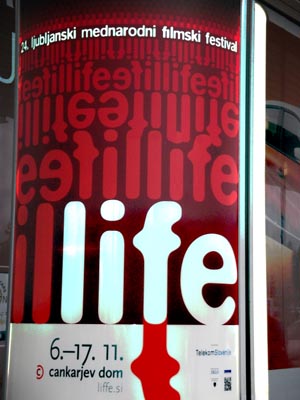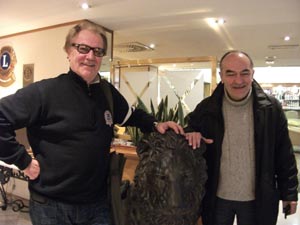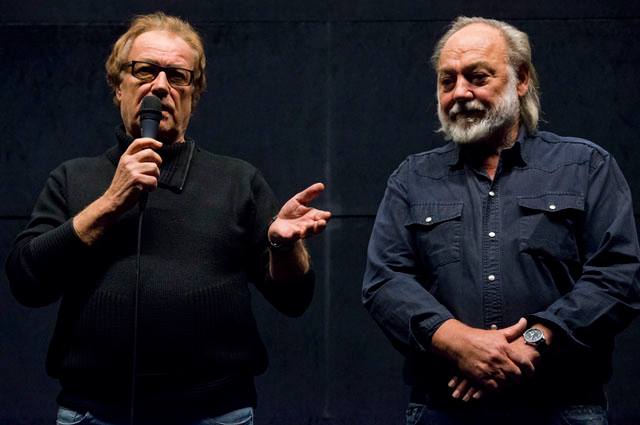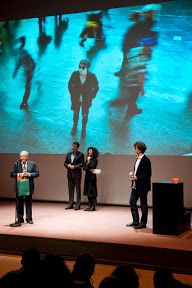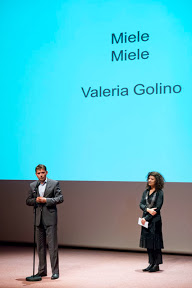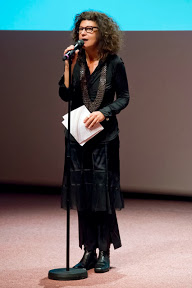|
|
||
|
Pro Tools
FILMFESTIVALS | 24/7 world wide coverageWelcome ! Enjoy the best of both worlds: Film & Festival News, exploring the best of the film festivals community. Launched in 1995, relentlessly connecting films to festivals, documenting and promoting festivals worldwide. Working on an upgrade soon. For collaboration, editorial contributions, or publicity, please send us an email here. User login |
Milcho Manchevski Talks About MacedoniaA true star of An International Film Festival FEST 2011 Milcho Manchevski presented his brand new film Mothers, film that could be seen as the continuance of previous 3 films, Dust (2001) and Bones (2007). Films where he talks about Macedonia his home country and where he talks of Macedonian contemporary family. Even if entirely different in style and form, Mothers is, by its subject related to his previous films. Most of Mancheski’s films were shot in Macedonia, written in New York and financed from European Fund, therefore, most of the crew of Mothers is not Macedonian, especially the production part. Manchevski built a career in the United States where he actually made many short films, published books of fiction and photography, staged performance art, taught at the NYU film school, and directed episodes of HBO's The Wire. The most proclaimed Manchevski’s Before Rain (1994) won Golden Lion in Venice, had Oscar nomination, as well as many other awards and has been proclaimed, according to New York Times, for the best 1,000 films ever made. According to Manchevski it took him quite while to find balance, because working on big Hollywood films takes time, and author film takes even more time and money. The accomplished balance lifted the great pressure due to a great success of his debut Before Rain. If Hollywood, just like many worldwide cinema, likes to depict "male-centered" films, without women being at the center of attention, Manchevski's Mothers pictures the ways of mothers, daughters and grandmothers, or wives survive in a contemporary post-war culture. In a way, this is very personal story, with all wonderful grandness of feminine atmosphere, in order to truly challenges audiences to see Mother through a feminine eyes. The gender issue here construct the reality thematically. The producer Christina Kallas here said that , „Mother " blurs the lines between fiction and documentary stylistically. But this ... has to do with our perception rather than with the director's intention to manipulate you ... Mothers is completely devoid of such intentions." While Manchevski here said that „what is most important with this film is that the film is bold because it is not a narrative try to connect 3 parts then to separate it, so the all 3 parts of the story stay unattached because of the emotions, not because of the story.“ Manchevski here admits the influence of Dostoevsky and Gogol, and wants to attempters the positive aspects of life with the more unpleasant: "I made Mothers as an attempt to figure out how to live and not be on the losing side -- at least for the moment. Perhaps we need to embrace our sadness and our fears,"explains Manchevski. Basically all 3 stories content a hidden web of lies and betrayals, to construct a powerful final act about community and respect.
Film Mothers includes 3 stories with structure, (something used in his debut film Before Rain) and all 3 stories, even if are different are about mothers, reflecting at the same time the present state-of-mind of Macedonia. Thoughtfully as it is usual for Manchevski’s films, in this trilogy episodes, on very provocative way he presents different aspects of contemporary Macedonia today. Film Mothers starts with fiction, which is a fabrication of a lie, and moves onto an attempt to fabricate a myth and then moves on a crude social reality of Macedonia in a documentary. First story is about independent child that reports maniac to the police and talks about certain sense of moral conflict. Second story is about a filmmaking crew who are doing documentary about old rural Macedonian traditions, and little spooky village with only one inhabitant, little old lady. And third story is documentary chronicle about serial killer in Macedonia, a case that was reported in all world news at the time, about middle-aged women getting killed by psycho journalist, a crime that truly shocked the public at the time. 04.03.2011 | Radmila Djurica's blog Cat. : Author Christina Kallas Director Dust Entertainment Entertainment Ethnic groups in Europe Europe Golden Lion HBO Journalist Macedonia Macedonia Macedonian language Manchevski Milčo Mančevski New York New York Times New York Times NYU Oscar Quotation Republic of Macedonia Slavic United States Venice PEOPLE
|
LinksThe Bulletin Board > The Bulletin Board Blog Following News Interview with EFM (Berlin) Director
Interview with IFTA Chairman (AFM)
Interview with Cannes Marche du Film Director
Filmfestivals.com dailies live coverage from > Live from India
Useful links for the indies: > Big files transfer
+ SUBSCRIBE to the weekly Newsletter Deals+ Special offers and discounts from filmfestivals.com Selected fun offers
> Bonus Casino
User imagesAbout Radmila DjuricaThe EditorUser contributions |



















